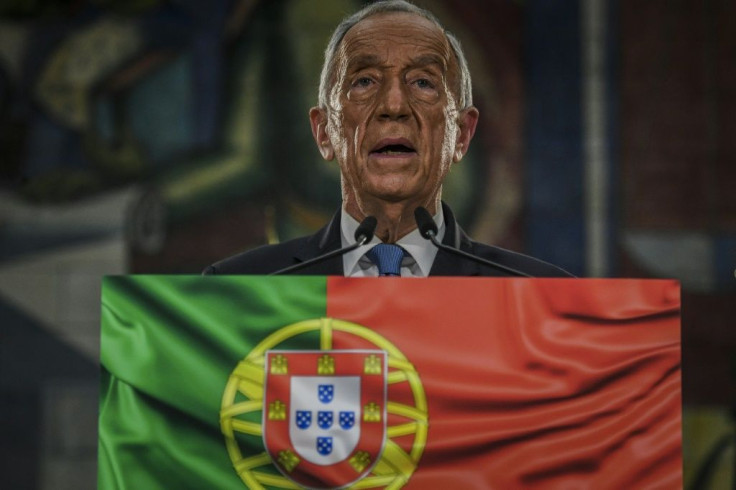Portugal's Re-elected President Braces For Greater Role In Politics
Portugal's re-elected President Marcelo Rebelo de Sousa faces new challenges and a greater role in politics after the unprecedented rise of ultranationalists and the failure of the Socialist government to control a raging Covid pandemic.
Sunday's election confirmed the immense popularity of centre-right President Rebelo de Sousa, who won the first round with 60.7 percent of the vote.
But it also heralded the meteoric rise of the party of Andre Ventura, a far-right anti-immigration candidate who captured almost 12 percent of the vote, just behind socialist Ana Gomes, who won about 13 percent.
Although Portugal is governed by the government of Socialist Prime Minister Antonio Costa, the president is more than a figurehead with a role over foreign policy and national security as commander of the armed forces and the power to dissolve parliament, call snap polls and veto some legislation.
In his victory speech Rebelo de Sousa pledged to make the fight against coronavirus his "first priority".
Portugal recorded its worst daily coronavirus death toll on Sunday, with more than 85,000 infections and almost 1,500 deaths reported in the past week.

That is the highest rate worldwide in proportion to its population of more than 10 million, according to an AFP tally based on government figures.
Rebelo de Sousa "reinforced his power in an evening of political tumult," the respected Publico newspaper said on Monday.
The vote marks "the consecration of the popularity and legitimacy" of the president, Antonio Costa Pinto from the Institute of Social Sciences at Lisbon University said, but added that it also revealed "the meteoric rise of the populist far-right."
According to an opinion poll on Sunday, the Socialists are still the main political force in the country but without an absolute majority, which escaped them in legislative elections in October 2019.

The Social Democrats are facing an increasing challenge from the Chega (Enough) party which made history in 2019 by securing the first far-right seat in the Portuguese parliament, which was won by its founder Ventura, a former football commentator.
Analyst Costa Pinto said the election pointed to a major "reconfiguration" of the right as "Chega has become a fundamental element for the establishment of a government of the right."
He said Chega, founded less than two years ago, could ultimately play a role in toppling the Socialists, pointing to its burgeoning popularity with the electorate -- 20 percent of whom could be swayed by its rhetoric, according to him.
Ventura, an ally of France's Marine Le Pen and Italy's Matteo Salvini, warned after the election: "There will be no government without Chega."
Political expert Paula Espirito Santo from the Institute of Higher Social Sciences and Politics said Portugal "has entered one of its most complex periods in recent history."
Portugal has been under a second national lockdown for the past 10 days aimed at stemming a surge in coronavirus cases.
Almost every day brings a fresh record in case numbers, and the government has now shut schools for two weeks on top of shops and restaurants.
With an exploding pandemic and an ensuing social and economic crisis the president will "have greater freedom" to weigh in on national politics, Espirito Santo said.
Portugal had so far to a large degree not seen the anti-establishment surges from the right that have reshaped the political landscape in many larger European Union nations in recent years.
"For the first time, an openly anti-system party has disrupted the traditional right, with nearly half a million votes," Ventura said Sunday as the ballots were being counted.
© Copyright AFP {{Year}}. All rights reserved.



















